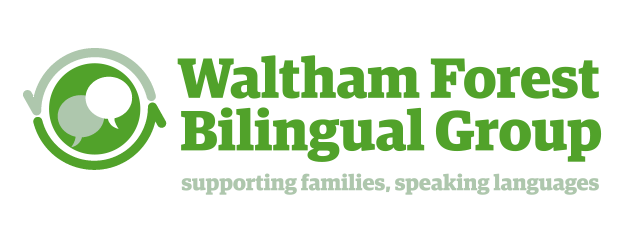During summer 2019, together with a local poetry group, WFBG will be organising Displays of Poems representing the linguistic diversity of Waltham Forest. Poems in over 45 languages will be put on display in Libraries and Parks across the Borough and on The Walthamstow Town Square Big Screen. Children will be given interactive walkabout learning opportunities while visiting the exhibition with their schools. Adults will be given the opportunity to join poetry reading sessions in local libraries.
This project is generously funded by the London Borough of Walthamstow and the Big Lottery Awards for All.
Displays should be installed by 7th June with launch events planned on 7th and 8th June – watch this space for more details.
Park Displays:
- Coronation Gardens, High Road, E10
- Langthorne Park, Birch Grove, E11
- Memorial Park, Chingford Mount Road, Chingford E4
- St James Park, Essex Road, E17
Library Displays:
- Hale End Library, Castle Ave, Highams Park E4 9QD
- Leyton Library, High Road, Leyton E10 5QH
- Leytonstone Library, Church Lane, Leytonstone E11 1HG
- Walthamstow Library, High Street, E17 7JN
The backstory
This project was inspired by a collection of Multilingual Poems created by Dympna McGahern in the lead up to the London 2012 Olympics. A small informal poetry reading group in Leyton encouraged Dympna to reach out to others to bring multilingual poetry into the heart of our community in a very public way. WFBG immediately saw the value of this in celebrating children’s home languages and encouraging parents to value heritage languages and pass them on through families.
Methodology
This project will use a similar selection criteria as the famous “Poems on the Underground”. To be included in the collection a poem has to be “short and says something of significance, some poems speak about the human condition, some bring up people’s emotions, the whole idea is to show poetry as a living art featuring contemporary poets mixed with older traditional poems.”
The main intention of the displays is to represent the languages spoken in Waltham Forest and the ones that form part of the heritage of residents, including languages of the newer arrivals from the Baltics, the Balkans and Eastern Europe, the settled communities from the Indian subcontinent, some African, Caribbean and American groups. Around 45 languages will be presented.
Working with Joseph Clarke School, Walthamstow, Centre of Excellence for Visually Impaired and Students with Multiple Complex Needs, the Library displays will be accessible through Braille and Large Print copies of the Poems.
Love your heritage. Pass it on
The public display of Multilingual Poems will present Waltham Forest as a Borough that relishes its varied and rich community. It will be an open celebration of diversity in a very visual way – the various language scripts are a visual feast in their own right. It is also an opportunity to celebrate the heritage of people who are often culturally ignored, thereby enriching the whole borough’s appreciation of its own unique culture capital. The head of PEN International recently said that the story of Babel is the single most damaging myth in our culture: our global linguistic wealth should be more appropriately represented as The Tree of Life. From this suggestion the project has adopted a Celtic Tree of Life as its logo.
Children’s activities
All the local schools will be invited on a Poetry walkabout. An education pack accompanies the displays. A key element in the education pack is its emphasis on creating bilingual responses using peer and parent experts. This is central to the main purpose of the displays: community building and a wider social appreciation of our unique cultural heritage .
From students’ responses, it is expected that schools will create their own multilingual poetry displays. There is a plan to provide prizes for the best and celebrate them locally. An idea mooted for this by an Assistant Primary Head Teacher is to display students’ best bilingual poems in the autumn on the Town Centre Big Screen, thereby extending a sense of a local poetry festival.
The Research activities for older students highlight the economic and social benefit of multilingualism and seek ideas for keeping the great wealth of languages that currently exist in our country alive. We will make the education pack available to all schools in the Borough.
Poetry reading groups
An extension idea was to set up adult Bilingual Poetry Reading groups in local libraries. Unfortunately libraries don’t have funds to support this. Nonetheless, there is a take-up of the idea from Bengali and Tamil speakers and it is hoped to extend the bilingual reading groups to others, including Urdu, Chinese, Somali and Turkish speakers. Interlibrary loans of bilingual texts from the National Poetry Library, South Bank are being arranged so that multilingual poetry resources are readily available in the borough’s libraires.
